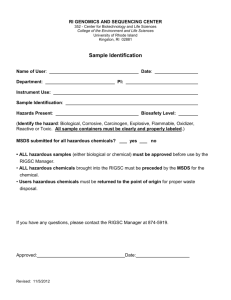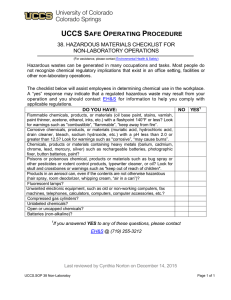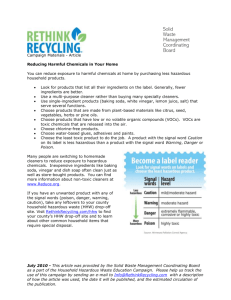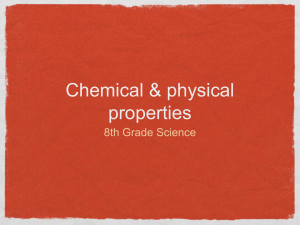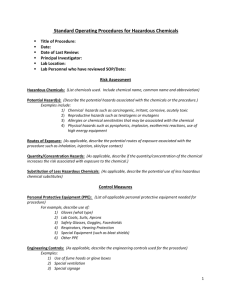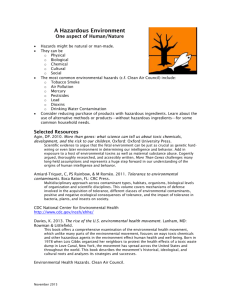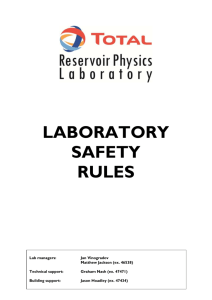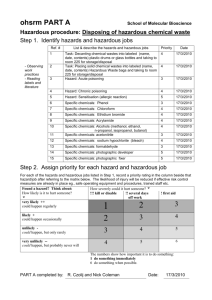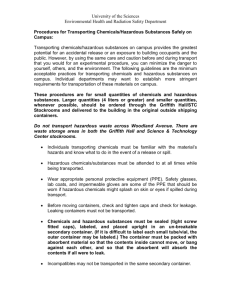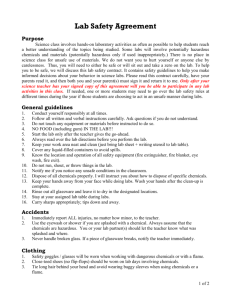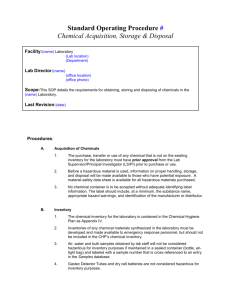File
advertisement
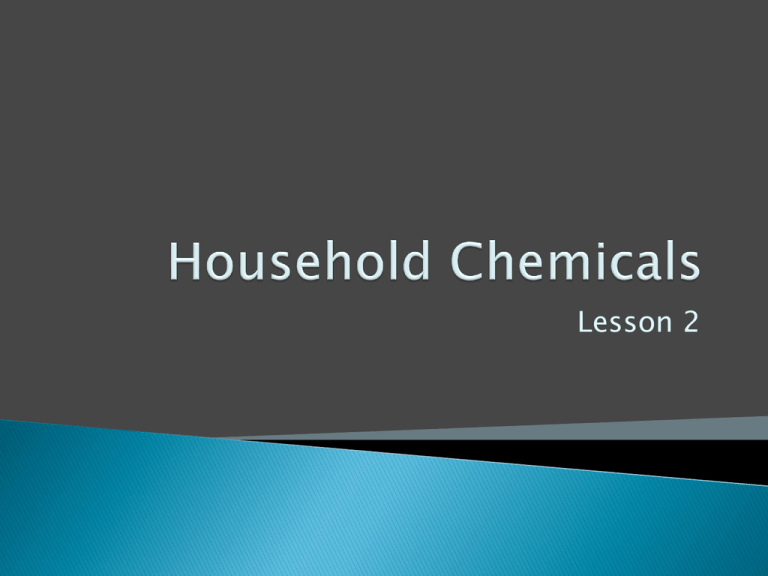
Lesson 2 Each chemical found in your home has a special purpose. The properties of the chemical determine what it will react with. In general we do not want products in our homes to react with each other. On the other hand there are products that we do want to react with other materials. These are normally cleaners that contain materials such as bleach and ammonia, which are very reactive chemicals In order to notify users which chemicals are dangerous and in what ways they are dangerous we use Hazardous Household Product Symbols. The HHPS has four categories of Hazardous materials as well as three levels of severity. The HHPS has four categories of Hazardous Chemicals flammable toxic corrosive explosive Poisonous If you swallow or inhale this product, you could become very sick or die Flammable This product or the fumes from it can catch fire quickly. Keep this product away from heat, flames and sparks. Explosive The material in the container will explode if the container is heated or if a hole is punched in it. Metal or plastic can fly out and hurt your eyes or other parts of your body. Corrosive The material in the container will breakdown and damage other materials including skin The HHPS has three levels of severity Caution is the least sever of the three symbols Colour Yellow Warning is more severe Colour Orange Danger is the most severe. Colour Red Household chemicals can be categorized according to where they are used: kitchen and bathroom, the garage, the walls, and the garden. Many cleaners contain substances that dissolve or interact with dirt and grease, but may also contain hazardous chemicals. There are many environmentally friendly products that are alternatives to the hazardous chemicals. When using chemicals try to avoid using more than is needed. Many hazardous solvents are used on automobiles. Proper handling and disposal is essential to avoid contamination of soil and ground water. Paints and solvents contain hazardous chemicals. When painting try to use latex water based paints that are low in Volatile Organic Compounds (VOCs) Recycling unused paint and paint tins Chemicals used for lawns and gardens include fertilizers and pesticides. Fertilizers are fine as long as they are used properly. Pesticides on the other hand can be incredibly poisonous. New regulations were passed last year limit the use of such products to registered users. Fines can be issued to those using the products without legitimate registrations. Alternatives to chemical pesticides ◦ Predator insects ◦ Insect traps ◦ Remove trash and waste from gardens
